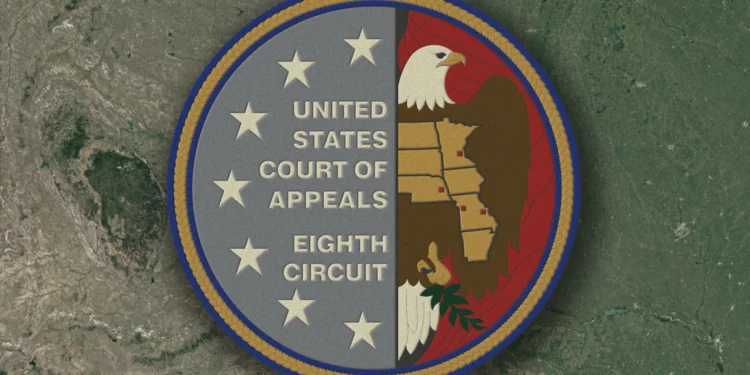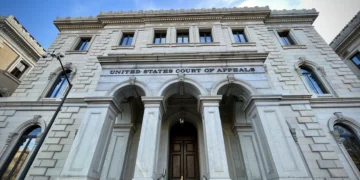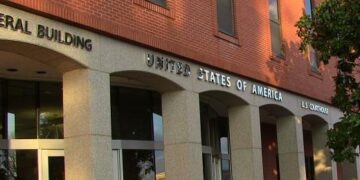May 15, 2025 Story by: Publisher
A three‐judge panel of the U.S. Court of Appeals for the Eighth Circuit on Wednesday held that private individuals and organizations may no longer enforce Section 2 of the Voting Rights Act through lawsuits under 42 U.S.C. § 1983.
The decision effectively bars citizens in Arkansas, Iowa, Minnesota, Missouri, Nebraska, North Dakota and South Dakota from bringing private civil‐rights claims challenging laws or maps that dilute minority voting power.
Background and Legal Context
For over 40 years, Section 2 of the Voting Rights Act has enabled private plaintiffs to sue state and local governments for practices that “deny or abridge” the right to vote on account of race or color. Those suits have typically been brought under two statutes: the Voting Rights Act itself and Section 1983, a Reconstruction‐era law offering broad remedies for constitutional and federal‐statutory violations by state actors.
That statute gives individuals the right to sue state and local government officials for violating their civil rights. Section 1983 stems from the Ku Klux Klan Act that Congress passed after the Civil War to protect Black people in the South from white supremacist violence, and voting rights advocates have considered it an antidote to a controversial 2023 decision by a different federal appeals panel that made it harder to enforce Section 2 in the 8th Circuit.
In 2023, a separate Eighth Circuit panel significantly limited Section 2 enforcement by ruling that the Act does not itself confer a private right of action. Plaintiffs thereafter relied on Section 1983 to carry forward most Voting Rights Act cases in the circuit.
Wednesday’s ruling closes even that avenue, siding with Republican state officials who argued that Section 1983 permits suits only for rights “unambiguously” established by Congress—and that Section 2 does not meet that threshold because it does not explicitly authorize private enforcement.
The 8th Circuit ruling stemmed from a redistricting lawsuit filed in December 2021 on behalf of the Arkansas State Conference of the NAACP and the Arkansas Public Policy Panel. The groups alleged that a state House map passed after the release of 2020 census data weakened the impact of Black votes, which violates Section 2 of the VRA.
The plaintiffs argued that five additional majority-Black state House districts should be drawn to properly represent Arkansas’ Black population.
The pro-voting groups asked the court to immediately block the map to prevent it from being used in the state’s 2022 primary and general elections.
The court held a hearing on this in February 2022 and a Trump-appointed judge ruled that there is no private right of action under Section 2 of the VRA, which means only the U.S. Department of Justice (DOJ) — and not individuals and organizations — can bring Section 2 lawsuits.
The case was then dismissed, and the plaintiffs appealed the decision to the 8th Circuit. In November, the 8th Circuit affirmed that private citizens and groups can’t bring lawsuits under Section 2.
Then, in January, the 8th Circuit denied a request from the pro-voting groups asking for the consequential decision to be reconsidered.
The North Dakota Litigation
The appeal stemmed from a lawsuit filed by the Turtle Mountain Band of Chippewa Indians and the Spirit Lake Tribe, who challenged North Dakota’s post–2020 census state‐legislative map.
In northeastern North Dakota—where tribal lands sit amid heavily non‐Native districts—the plaintiffs argued that the legislature’s new lines “packed” and “cracked” Native‐majority precincts, stripping Native Americans of the opportunity to elect their preferred candidates in racially polarized contexts.
A federal district court agreed, finding the map violated Section 2 and enjoined its use. But North Dakota Secretary of State Michael Howe appealed, and the Eighth Circuit’s majority panel concluded on May 14, 2025, that private parties lacked a cause of action under Section 1983 to enforce Section 2. “Because [Section 2] does not unambiguously confer an individual right, the plaintiffs do not have a cause of action under [Section 1983] to enforce [Section 2] of the Act,” wrote Judge Raymond Gruender, joined by Judge Jonathan Kobes.
Dissent Highlights Decades of Private Litigation
Chief Judge Steven Colloton dissented, emphasizing that since 1982 private plaintiffs have filed over 400 Section 2 actions leading to landmark decisions across the country. “The majority concludes that all of those cases should have been dismissed,” Colloton admonished, warning that the ruling undermines a central mechanism of civil‐rights enforcement.
Implications for Voting Rights Enforcement
With the Department of Justice under the current administration stepping back from many Section 2 cases, private suits have become the primary check on discriminatory election laws in these seven states.
By foreclosing Section 1983 enforcement, Wednesday’s decision leaves only DOJ—whose resources and priorities have shifted—to bring Section 2 challenges, a prospect many voting‐rights advocates view as an “antidote” withdrawn.
The decision only impacts states in the 8th Circuit because the other circuits have not ruled the same way on this issue. Specifically, in the 5th, 6th and 11th U.S. Circuit Courts of Appeals, there are established precedents for private litigants to sue under Section 2 of the VRA. States under these courts’ jurisdictions include Alabama, Florida, Georgia, Kentucky, Louisiana, Michigan, Mississippi, Ohio, Tennessee and Texas.
Recently, the 5th Circuit — a very conservative court — affirmed this again. Last month, in a redistricting case brought by Black voters, the court denied the state of Louisiana’s request for the full court to hear arguments on whether a private right of action exists under Section 2.
What’s Next
The tribal nations and their counsel are evaluating whether to seek rehearing en banc in the Eighth Circuit or to petition the U.S. Supreme Court.
Meanwhile, similar challenges are pending in other circuits where state officials have questioned private enforcement rights under both Section 2 and Section 208 of the Voting Rights Act.
Many legal experts view these disputes as setting the stage for a definitive Supreme Court showdown over the private right of action under the Voting Rights Act—a question whose resolution will determine the future of minority voting‐rights litigation nationwide.
Source: NPR / Democracy Docket

















